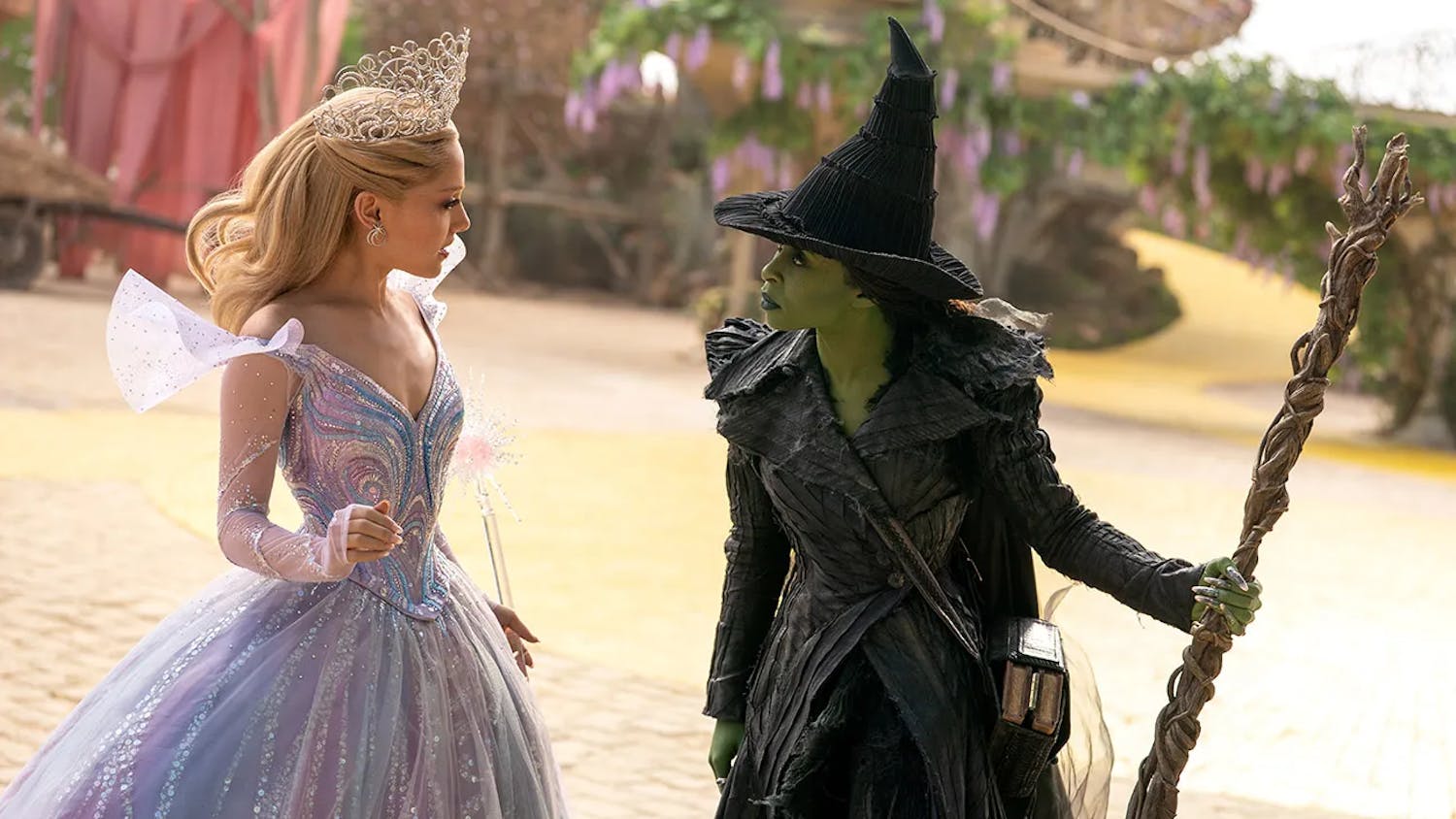On April 23, the Longwood UniversityWomen’s and Men’s Choirs joined together for their final performance of the year entitled "Walking in Beauty."
Throughout Jarman Auditorium, echoes of melodic voices could be heard throughout the performance, which began promptly at 7:30 p.m. The first group to go was the Women’s Choir, who emerged onto the stage in a mix of bright, spring colored ensembles that brightened the stage during the performance. The group began their piece, “Regina Coeli” by Johannes Brahms, with strong voices as it was a mirror cannon, which Dr.
Pamela McDermott described as similar to performing “Row Row Row Your Boat” in cannon but the other singers sang opposite the form the first group did. Holly Bouffard and Vera Crouse, seniors, soloed for the song.
The women’s second piece, “Diary of Dickinson,” was a soft yet strong performance that slowed into its second half beautifully. The song was comprised of four Emily Dickinson poems, prepared by James Mulholland as a song.
The beginning to their next appropriately-named song, “The Piece of Wild Things” had a much more eerie opening sound with accompanist, Teri Kidd, playing with only sudden low notes on the piano. The lyrics assisted in the darker feeling, though the words were sung with grace: “For now I rest in the grace of the world and am free.”
A little more than a dozen students separated from the group for “Widmung from Myrthen, op. 25 no. 1” as they stood lined in front of the stands. Meridath Didlake, senior, provided Dr. McDermott with a break as she conducted the group. The fellow singers that remained in the stands did not participate in the song.
As “Ching-a-Ring Chaw” began, it was apparent the song was going to be more of an upbeat number than the rest, and it was indeed. The separated group continued to perform apart from the rest with Dr. McDermott returning as conductor before departing again for Bouffard to return to center stage and conduct for “Those Were the Days.” The song was written and sung as a sort of story of one reminiscing their earlier years. Soloists Taylor Magda, Jennifer Winter, and Kathryn Zeh joined Bouffard at the front for their solos throughout the song. During times it was a slow, even tone while it became more upbeat during the chorus of the song.
The group combined with several other instruments for their final few songs. Dr. McDermott introduced Kendra Spicer, member of the community, as well as sophomore Andrew Bentley and junior Spencer Smith, to the stage – all of whom did not have to attend the concert, but accompanied anyway to help further the chorus’ sound. While Spicer added a cello, Bentley played the baritone and Smith, the violin. The song, “Deep River,” was a splendid mix of notes that ended the women’s time alone on stage.
For “Now I Walk in Beauty: Navajo Prayer” by Gregg Smith, they were slowly joined by the Men’s Choir who made their way on stage during the beginning of the song.
The mix of the voices clashed well for the remainder of the songs the groups did together, including “Behold, My love, How Green the Groves” by Ludwich von Beethoven and “A Red, Red Rose” by James Mulholland. During “Behold” the ladies faced the men as the gentleman somewhat serenaded them from the center of the stands as the girls aligned the outer parts.
Before the men began, Dr. McDermott joked that the size of the choirs were like the ratio of Longwood, about 70 percent of girls to 30 percent guys. She also explained that the women who accompanied the men during their sets volunteered their time to join the men.
She also said that the first song by the men, “Viva Tutti” was “a toast to the women,” after singing in the middle of them for the previous songs. Darnell Royster, senior, conducted for “Gentle Annie,” a slow lament composed by the writer just after his cousin Annie died.
For “Gratius Agimus Tibi,” a small group of women joined the men on stage, standing adjacent to the piano in a line while the men remained in the stands behind them. The soft song was made of two lines repeated in Latin. Maracas came into the mix (played by Dr. McDermott) along with various other interesting, handy instruments for “La Lluvia.” The song was made of no lyrics and simple sounds created by the girls’ mouths to mimic those of pipes as the parts overlap each other. The song was also conducted by returning Didlake. “Libertatum” was up next for the men, once again alone on stage, and combined the styles of jazz and classical, along with multi-ethnic rhythms throughout the song.


During the performance, the men clapped and hit their chests for sounds that influenced the song. Soloists Trent Gibbons and Devon Johnson separated themselves from the group as they performed together for the final parts of the song. The performance was comprised of only the noises the men made; the piano or other instruments were not used.
For the final two songs, the ladies all joined the men in the stands. As the men had done with them, the women made their way onto the stage during the beginning of “Walk Together Children” and the combined groups ended the performance with Longwood’s “Alma Mater,” which was originally written by Louard Egbett and Quentin Vest. Dr. McDermott chose the pieces by combinations for three and four part harmonies. She wanted cultural music and also ones to go along with her theme. “I try to get a good variety,” she said. While picking songs, she decided the theme would revolve around “Now I Walk,” “Red, Red, Rose” and Walk
Together” to create Walking in Beauty. With only two fifty-minute classes a week, McDermott wanted the students to be able to sing “rejuvenating” songs when they came to class.









